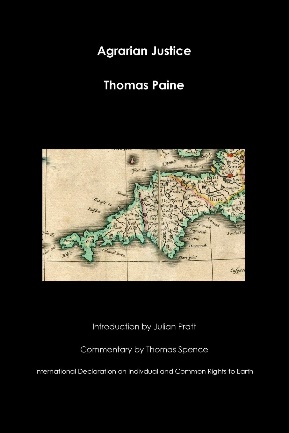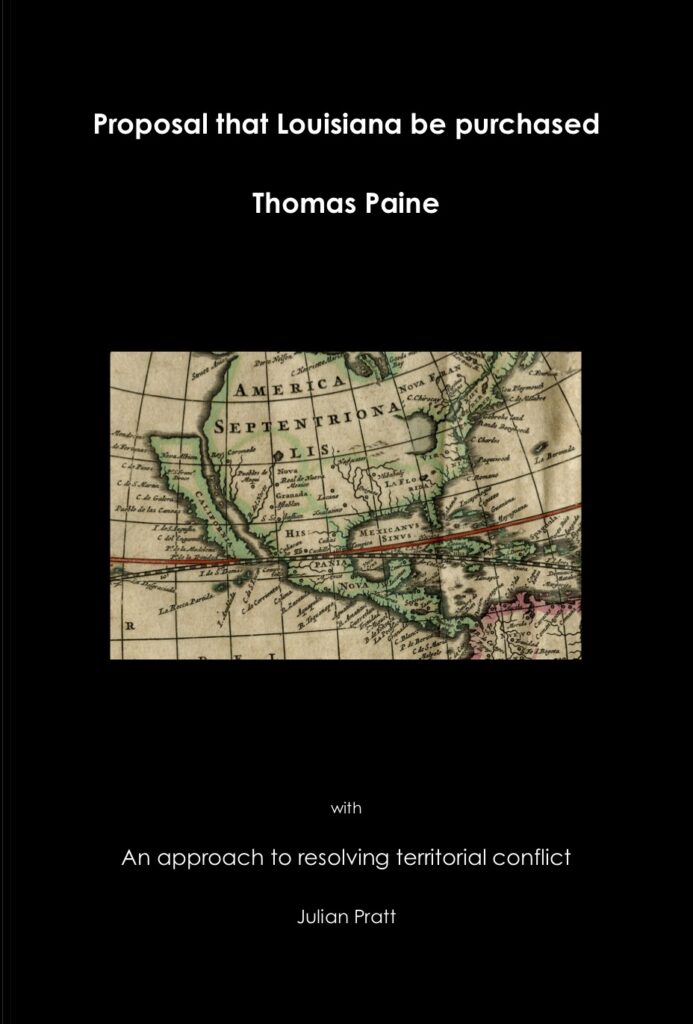Stewardship builds on a long and well-argued radical tradition. In addition to his own work, Julian re-published two important works by Thomas Paine which had inspired him. There is more about the historical perspective in Book 6.
Agrarian Justice

Tom Paine’s ‘Agrarian Justice’ (1797) continues to inspire progressive politicians today as a source of two contemporary policies, Land Value Taxation and Universal (Basic) Income (Citizen’s Income). His starting point was the belief, widespread until the end of the eighteenth century, that the Earth is the common property of humankind. Rather than advocating the common ownership of land, he proposed that landowners ‘owe to the community a ground-rent’, the market rent of their land. He advocated that this be paid into a fund to be used for the benefit of all, both as a lump sum payment to individuals on reaching adulthood and as a pension for older people. He is well worth reading for his passion and rhetoric.
This publication includes a riposte written in the same year by Thomas Spence, who had published a similar but more radical proposal in 1776. It also contains a 20th century restatement of individual and common rights to the Earth and a summary of the relevance of Agrarian Justice today.
Proposal that Louisiana be purchased

In 1802 Louisiana was administered by the French. Napoleon had denied access by the USA to New Orleans and there was a real risk that the two countries would go to war. On Christmas Day Tom Paine wrote a short letter to the President, Thomas Jefferson, suggesting that the USA should purchase Louisiana from the French. Within a year the deal had been done.
When it comes to disputes about territory and natural resources, are we missing a trick? Could we make more use of financial solutions to settle disputes? As Tom Paine asserted that a landowner should pay ground rent to be distributed to all, what if this distribution were to go beyond the national boundary? There would be a dramatic reduction in the incentive for one state to grab the territory of another. Buying, or, even better, renting territory could be used more often when conflict threatens, and would promote peace-building.